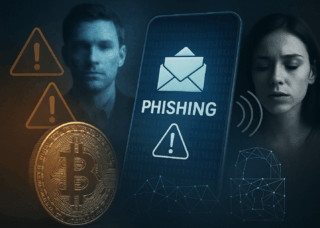Hiring a private investigator can feel daunting, especially if you’re unsure where to start. With services like Privin offering access to skilled professionals, understanding what to look for in a private investigator can help you find someone who aligns with your unique needs.
The demand for investigative services has been steadily increasing, with the U.S. Bureau of Labor Statistics projecting a 6% employment growth rate for private detectives and investigators from 2021 to 2031. This growth highlights the importance of understanding the various services provided by private investigators, allowing you to find the one best suited to your needs.
From identifying the right specialization to asking essential questions, this guide will ensure you approach the hiring process with clarity and confidence.
Questions to Ask a Private Investigator: Key Factors to Consider
Finding the best private investigator for your needs involves thoroughly researching potential candidates, assessing their communication skills, and verifying their experience and reputation. This process helps ensure that you hire a professional who can effectively gather evidence, conduct surveillance, and provide the services you require.
It’s essential to look beyond the surface when evaluating potential private investigators. Meeting with them in person can provide valuable insight into their physical capabilities, demeanor, and professionalism. By doing your due diligence and knowing which questions to ask a private investigator, you can make an informed choice and find the best professional to handle your case.
Ask to See The Private Investigator License
Verify that the investigator is fully licensed and meets state requirements. Licensing is often a legal requirement and a marker of professionalism, as it confirms that the investigator has met standards for competency and ethics.
You may also consider certifications like the Certified Legal Investigator (CLI) or Professional Certified Investigator (PCI) for added assurance.
Inquire About Qualifications and Experience
Depending on the case, specific skills may be essential. Investigators often have backgrounds in law enforcement and criminal justice. Ask about their specific experience, especially if your case requires specialized skills, such as background investigations and missing persons searches. Cases pertaining to corporate investigations and criminal cases require specialized skills as well.
For example, cyber forensics, financial auditing, or language skills might be necessary. Choosing an investigator with these specialized skills can significantly impact the success of your case.
By understanding the role of a private investigator, you can better determine which one is the best fit for your needs. This includes knowledge of privacy laws, the use of surveillance equipment, and the ability to access public records such as criminal records. See examples of private investigator cases private investigators handle for better understanding.
Check for Insurance Coverage
Insurance is a critical factor when hiring a private investigator, as it can protect you in case of unforeseen issues during the investigation. Confirm that the investigator has adequate insurance coverage, which demonstrates their responsibility and professionalism.
Having insurance not only safeguards you from liability but also indicates that the investigator operates with a high level of accountability. Reliable private investigators prioritize their clients’ protection and ensure comprehensive coverage to avoid potential complications.
Ensure They’re Associated with Professional Organizations
Membership in professional organizations, such as the National Association of Legal Investigators (NALI) or the World Association of Detectives, is a strong indicator of a reputable investigator. These memberships often come with ethical guidelines and best practices that members are expected to follow.
Professional associations offer resources and continued education, helping investigators stay updated on the latest industry standards. Affiliations like these can reassure you that the investigator adheres to a code of ethics and best practices, which is essential for cases that require discretion and sensitivity.
Request Testimonials and References
Client testimonials and references offer an inside look into the investigator’s reliability and effectiveness. Look at online reviews, testimonials, and word-of-mouth recommendations. These offer valuable insights into an investigator’s reliability, effectiveness, and professionalism, allowing you to make an informed choice. Positive feedback from previous clients can reassure you about the investigator’s capability to handle your case professionally and deliver results.
If the information isn’t available, request contact information for references from your Private investigator. Speaking directly with past clients allows you to ask specific questions about their experience, helping you assess whether the investigator’s approach aligns with your expectations.
Ask for a Work Sample (if Available)
While confidentiality often limits what investigators can share, some may be able to provide redacted work samples or case summaries that demonstrate their attention to detail and thoroughness.
A work sample allows you to gauge the quality of their documentation, analysis, and investigative processes. This insight can help you determine if the investigator’s approach aligns with the complexity of your case and if they’re likely to produce clear, actionable reports.
Discuss Pricing and Retainer Fees
Private investigator rates can vary widely, so it’s essential to understand their pricing structure and retainer policies. Request a clear breakdown of costs, including any hourly rates, retainers, or additional fees that may apply to avoid surprises later.
Beware of unusually low rates, as they may indicate a lack of experience or resources. At the same time, high fees aren’t always indicative of quality. Finding an investigator with transparent, reasonable pricing ensures you receive value without compromising service quality.
Evaluate Communication Skills
Clear, consistent communication is essential for a smooth investigation. An investigator should be responsive and proactive in updating you on the case’s progress, especially if unexpected developments arise.
Discuss how often you’ll receive updates and whether they’re available for questions throughout the investigation. Investigators who prioritize open communication can provide peace of mind, keeping you informed and engaged in the process.
Confirm Their Area of Specialization
Different types of investigations require specific skills and expertise. Choose an investigator whose specialization aligns with your needs, whether it’s surveillance, corporate investigations, or personal matters like child custody. Most investigators have their own area of expertise, make sure you do your research to avoid making this mistake.
For example, corporate fraud cases may require a background in financial forensics, while child custody cases need experience with sensitive, family-related investigations. Ensuring the investigator specializes in your case type can significantly impact the effectiveness and accuracy of the findings.
Review the Contract Carefully
Before signing, thoroughly review the contract to understand the scope, fees, and terms. A clear, detailed contract ensures both parties have agreed on expectations, preventing potential misunderstandings or hidden costs.
A transparent agreement outlines the investigation’s parameters, billing structure, and expected deliverables. By ensuring everything is documented upfront, you can confidently move forward, knowing there’s mutual clarity on the investigation’s process and goals.
Verify Legal Requirements and Certifications
Licensing and certifications are critical markers of an investigator’s qualifications and legality. Confirm that the investigator meets all state licensing requirements, and consider certifications like Certified Legal Investigator (CLI) for added credibility.
Certified professionals often have advanced training in areas like legal procedures and evidence handling, which can be particularly important in complex or sensitive cases. Confirming the investigator’s certifications assures you of their professional commitment and ability to deliver results lawfully. Avoid common mistakes when hiring a private investigator.
Frequently Asked Questions
How much does a private investigator cost?
Private investigator costs vary from $90-$150 per hour or up to $5,000, depending on the complexity and scope of the case. Most investigators require a retainer before starting.
How does a private investigator work?
Private investigators use diverse tools, from online public records to specialized software, to gather evidence for clients. Often, they’re hired for civil or criminal matters and perform pre-employment checks, tenant screenings, and skip tracing. For more details check this guide about what to expect during a private investigation.
Can a private investigator track a cell phone?
Yes, investigators can analyze financial transactions, track records, and GPS data. Some may also retrieve deleted data and create a profile based on available information.
When should you hire a private investigator?
Hire a private investigator when you need thorough background checks, assistance with a big business decision, or help in finding someone. Their expertise can prevent costly mistakes in critical situations.
Conclusion
Hiring the right private investigator can be a challenging but rewarding process. We hope this guide offers you insights about the essential questions to ask a private investigator,to make informed choices. Remember, clear communication, ethical practices, and the right specialization are essential in finding the best fit for your needs. With the proper approach, you can confidently hire a professional who will work diligently to achieve your desired outcome.
Contact Privin for a free consultation, and let our expert private investigators provide you with the professional assistance you need. Whether it’s personal matters or business concerns, we’re here to help you uncover the truth efficiently and confidentially.






